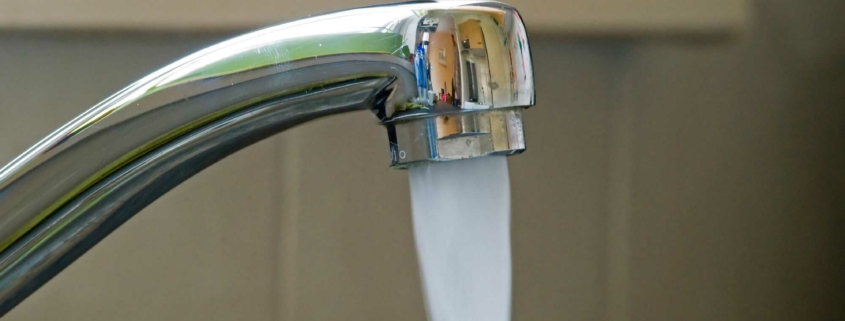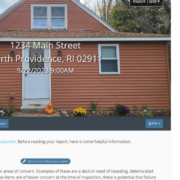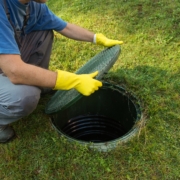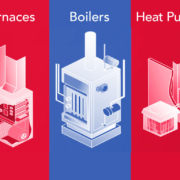The Importance of Inspecting Your Well
Inspecting your well is an essential part of maintaining a safe and reliable water supply for those who rely on private wells for their drinking water. This process involves regular checks and maintenance to ensure that the well is functioning properly and that the water it provides is safe for consumption. Here’s why regular well inspections are so important:
Ensuring Water Quality
One of the primary reasons to inspect your well regularly is to ensure the water quality remains high. Over time, wells can become contaminated with various pollutants, including bacteria, nitrates, radon, and even heavy metals like lead, magnesium, and arsenic. Regular testing and inspection can help identify these contaminants early, which allows for timely interventions to maintain water safety.
Preventing System Failures By Inspecting Your Well
Wells are complex systems that include not just the physical well itself, but also pumps, storage tanks, and treatment systems. Regular inspections can help identify wear and tear, corrosion, or other issues that could lead to system failures. Catching these issues early can prevent more costly repairs down the line and ensure a consistent water supply.
Protecting Groundwater Resources
Wells draw from groundwater sources, which can be susceptible to depletion and pollution. By regularly inspecting your well, you can ensure that it is not contributing to the overuse of groundwater resources and that it is properly sealed against surface contaminants. This helps protect the broader groundwater ecosystem, which is vital for the environment and the community at large.
Complying with Regulations
In many areas, there are regulations governing well construction, maintenance, and water quality. Regular inspections ensure compliance with these regulations, helping well owners avoid legal issues and potential fines. They also ensure that the well meets safety standards that protect both the well owner and the surrounding community.
Preserving Property Value
For properties that rely on well water, the condition of the well can significantly impact property values. A well-maintained and regularly inspected well is a valuable asset, indicating to potential buyers that the property has a reliable and safe water supply. This can make the property more attractive in the real estate market.
Regular maintenance and inspections can significantly extend the life of your well. By addressing issues early and ensuring the system is functioning correctly, you can avoid premature wear and tear, prolonging the well’s operational life and ensuring it continues to provide clean, safe water for years to come.
Peace of Mind
Knowing that your well is in good condition and that your water supply is safe can provide significant peace of mind. Regular inspections allow well owners to have confidence in their water source, reducing the worry about potential health risks associated with water quality issues.
The CDC recommends inspecting your well annually for mechanical problems, cleanliness, and the presence of certain contaminants, such as coliform bacteria, nitrates/nitrites, arsenic, and radon.
What Happens During a Well Inspection?
There are a number of components that make up a well inspection. These include Certified Lab testing of water quality, inspecting the wellhead, inspecting the pressure tank, inspecting your water treatment system, inspecting the well pump, and performing a functional flow test of your home’s water.
Our functional well flow test consists of running water at the home’s exterior spigot, measuring the gallons per minute (GPM) and pressure (PSI). The inspector runs 150 gallons for a one-bedroom home plus an additional 50 gallons per additional bedroom. The inspector will also run multiple fixtures throughout the home to check for any issues such as drops in water pressure. This is to ensure there is sufficient pressure, as well as enough water present in the well to supply to the home.
Conclusion
Regularly inspecting your well is a crucial aspect of owning and maintaining a private well. They help ensure water quality, system reliability, and compliance with regulations, all of which contribute to the well-being of the well owner and the community. By investing in regular inspections, well owners can enjoy a safe, reliable water supply and contribute to the sustainable management of groundwater resources.
Maintaining a high-quality water supply for your family is of the utmost importance. CMS Home Inspection offers several well water quality testing packages for potential buyers and property owners to choose from. Our well-testing packages either meet or exceed FHA & VA minimum standards.
Are you ready to schedule your next well system inspection? CMS Home Inspection offers home and well inspection services to homes in Rhode Island, Massachusetts, Connecticut, and the surrounding area. Contact CMS Home Inspection to schedule your well inspection today.












Leave a Reply
Want to join the discussion?Feel free to contribute!